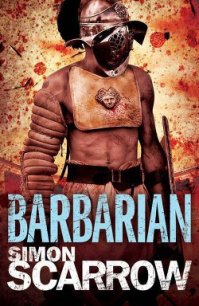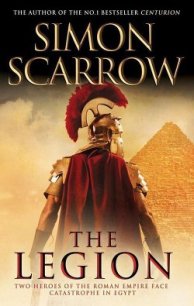The Fields of Death - Scarrow Simon (читаем книги онлайн бесплатно txt) 📗
Joseph nodded wearily.
‘Then the matter is settled. Save one final duty I ask of you.’
Joseph’s eyes narrowed. ‘What is it?’
‘It is possible that I may be defeated. That I may even be killed on the field of battle. In either event I could not bear the thought of my son being raised as an Austrian prince. I would rather his throat was cut. Do you understand? Under no circumstances is he, or his mother, to be allowed to fall into enemy hands, alive.’
Joseph could not hide the look of revulsion that instinctively rose up in response to the request. ‘I am not a murderer.’
‘It is not murder. It is mercy that I ask of you. If the worst happens, then spare my son, my flesh and blood, the indignity of denying his true identity. I ask you to promise me this. Swear to me that you will give the order. On your honour.’
‘No!’ Joseph raised his hands. ‘Ask anything of me but that.’
Napoleon glared at him for a while, then slumped back into his chair. ‘Very well. I shall have to ask another. But it pains me that you of all people should deny me this comfort before I go to war.’
‘It pains me that my brother, of all people, should ask me to commit such a monstrous act.’ Joseph stood up abruptly. ‘Now, if you no longer require my presence, sire, I will leave.’
Napoleon stared up at him coldly. ‘Then leave.’
His brother turned and strode towards the door, opening it swiftly and closing it loudly behind him, without once glancing back at Napoleon. The room was silent, save for the low moan of the wind outside as it gusted over the darkened city.
Chapter 49
Arcis-sur-Aube, 20 March 1814
The engineer officer approached Napoleon and Marshal Ney and saluted. ‘The bridge is repaired, sire. The army can cross as soon as you give the command.’
‘Well done, Captain. You and your men have pleased me. Pass on my thanks to them.’
‘Yes, sir.’ The engineer’s pleasure at the compliment shone from his face. He swallowed nervously. ‘And . . . and I’m certain they wish you a swift victory, sire.’
‘That may take somewhat longer to achieve.’ Napoleon smiled thinly. He turned to Ney, instantly banishing the other man from his thoughts. ‘Send Sebastiani and his cavalry across first. They are to press forward and screen the bridgehead. The Guard can cross next.’
Ney bowed his head to acknowledge the order, then replied,‘We still can’t be certain what strength we face to the east, sire. What I wouldn’t give to have Murat and his men with us now. Such fine cavalry . . .’ Ney glanced quickly at his Emperor and the latter’s dark expression instantly stilled his tongue.
‘Then it is a shame for us both that Murat has decided to deny us his good services,’ Napoleon responded bitterly. It was only two weeks before that the news had arrived from Italy. Marshal Murat, the Emperor’s brother-in-law, whom Napoleon had gifted the kingdom of Naples, had defected to the allies. There had been little of the rage that Napoleon might once have given vent to when he first heard of Murat’s’s treachery. Anger had swiftly given way to contempt and disgust. Napoleon fervently hoped that he lived long enough to have his revenge. Not just on Murat, but on the newly recrowned Ferdinand of Spain as well. Despite the treaty he had signed with Napoleon at Valenзay, Ferdinand had failed to keep one of the promises he had made so earnestly and Spain was still at war with France.
Revenge would have to wait, he reflected. That was a luxury he must deny himself, until the invaders had been driven from French soil. The allied armies remained divided, advancing boldly across northern and eastern France, confident in the strength of their numbers. As a consequence he been able to strike at their overextended columns several times since he had taken command of his forces at the end of January. Although the snow, and the subsequent mud, had hampered the movements of both sides, Napoleon held the advantage of support of the French people, who turned out to help heave the guns through the mud, or sabotaged bridges and obstructed roads to delay the enemy wherever they could. If they no longer showed unrestrained joy and loyalty in his presence, then at least he could rely on them to hate and resist the enemy.
At present, Napoleon needed every shred of assistance that could be mustered for his outnumbered soldiers. While he marched with Ney against the Austrians of General Schwarzenberg, Marmont was attempting to hold the approaches to Paris against two Prussian armies. Napoleon was already contemplating the need to abandon the capital to its fate and concentrate all his forces for one bold, massed attack sweeping across the lines of communication of his enemies. It would be a desperate measure, but there was no hope for any other strategy - military or diplomatic - should Paris fall to the enemy. The allies had just announced that they were resolved to agree a single peace with France and there was no longer any question of reverting to the pre-Revolution borders, under the rule of Napoleon. His reign was forfeit, and the allies would dictate their terms to France, if they were victorious.
Napoleon cleared his throat and addressed Ney calmly. ‘Sebastiani’s patrols reported that the main Austrian column is twenty miles to the north. We are facing their rearguard. If we can advance quickly enough to force a battle then we shall overwhelm them. There is nothing for you to be concerned about.’
‘I’m not concerned for myself, sire,’ Ney responded testily, and gestured towards the columns of guardsmen waiting for the order to advance. ‘But we cannot afford to risk the few men we have left to face the enemy.’
‘We will lose some,’ Napoleon shrugged. ‘The trick of it is to make sure that they lose more, far more, than we do.’
‘They can afford to, sire.’
‘Not indefinitely. As long as we are resolved to fight the invader, we have the advantage of interior lines of supply, and a unity of resolve and purpose, something that no alliance ever truly has. So we shall continue to drive a wedge between them, until their alliance shatters.’
‘And if it doesn’t?’
Napoleon forced a smile. ‘Come now, my dear Michel, surely the bravest of the brave has not lost the desire to fight?’
‘Do not doubt my courage, sire. But I am a man of sound judgement too and I question what we are doing here.’ He paused, then shook his head wearily. ‘You should have accepted their offer of peace.’
Napoleon looked at him coldly. ‘It is too late for that. We must do what we can with the tools at hand. Now, order your men to cross the river.’
Ney’s lips compressed and he stared at his Emperor briefly before tugging his reins and spurring his horse over towards the leading formation of Friant’s guardsmen.
Early in the afternoon Napoleon crossed the bridge and re-joined Ney and the Guard as they approached the village of Torcy-le-Grand, nestled in rolling farmland. Ahead of them, dotted across the countryside, rode the cavalry patrols, ever watchful for a sign of the enemy. From the east a distant crackle of small arms carried on the chilly air and Napoleon pointed in the direction of the sound.
‘Have that investigated at once. The enemy is supposed to be in the south.’
‘Yes, sire.’
While Ney sent an order forward to Sebastiani, Napoleon turned his attention to the men of the brigade he was riding alongside. They were soldiers of one of the recently raised units. There was a leavening of veterans, denoted by the chevrons on their sleeves, but most were new recruits, selected from the training camps to join the Imperial Guard directly. The only battle experience they had was the last few weeks of campaigning. A few men raised cheers for the Emperor as his horse trotted by, but most either just glanced at him, or stared at the ground in front of them as they tramped on, bending under the burden of their muskets and backpacks. The strain of forced marches through the cold days and nights of winter was evident in their grim and numbed expressions. These men must endure the hardships of the campaign better than their enemies if they were to win victories and save France, and their Emperor’s throne.




